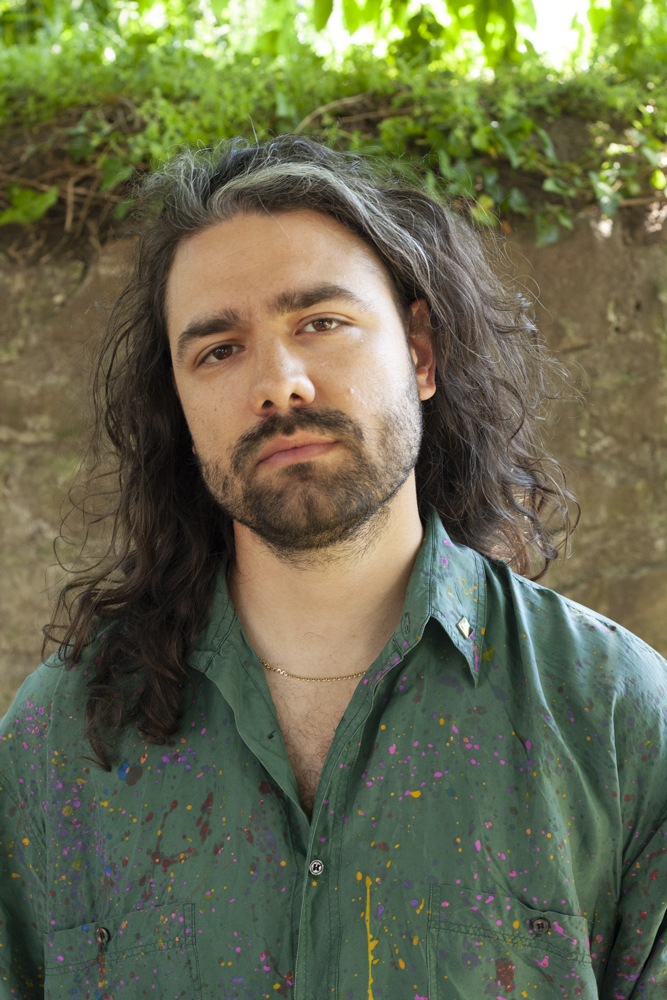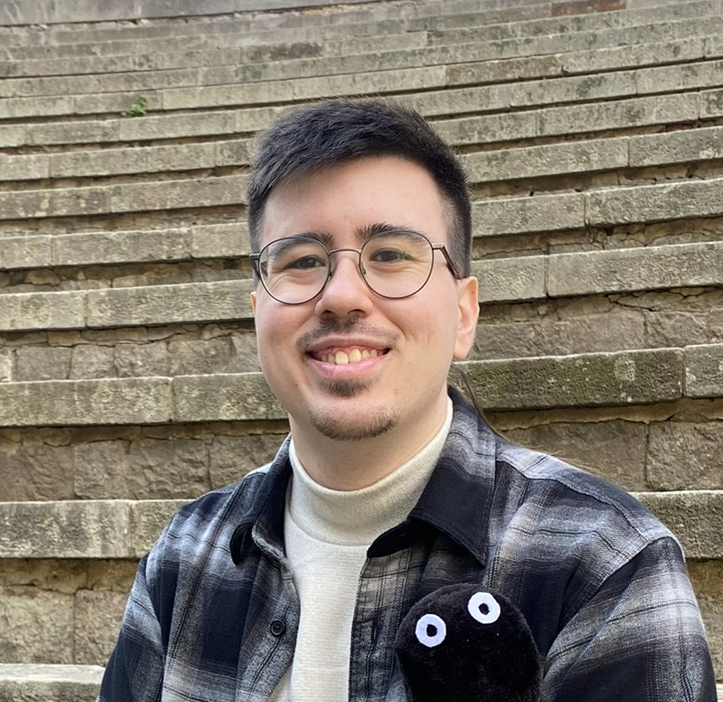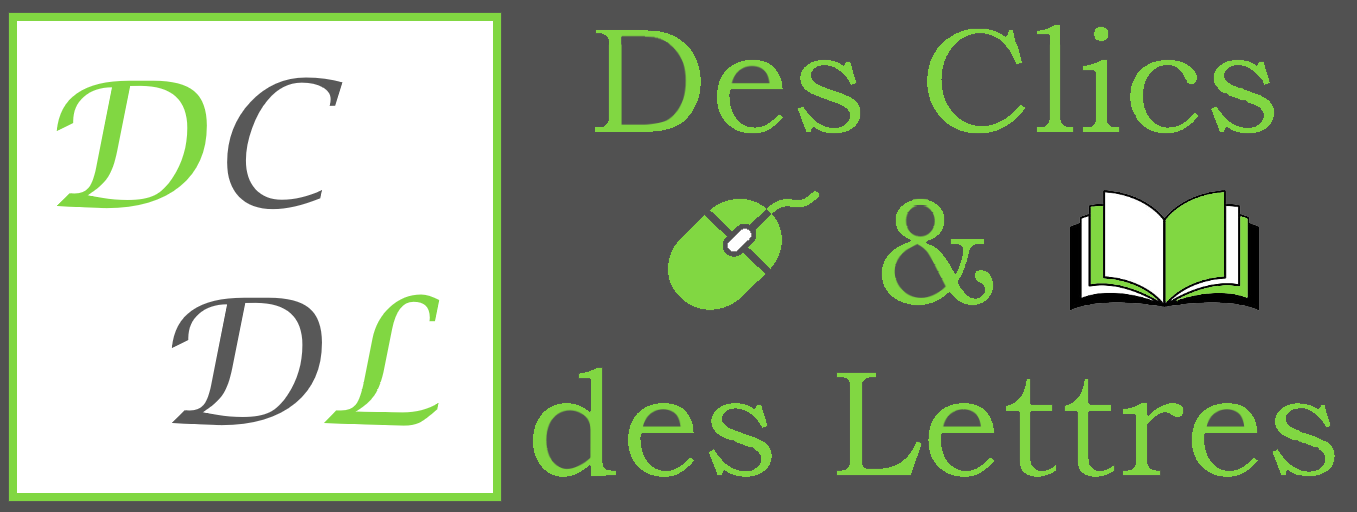Interview done on december 23rd 2024
In this new interview on DCDL, Blaž Urban Gracar and Ferran Ruiz Sala, developers of the brilliant puzzle game LOK Digital (see article here) tell us about the making of the game and the fruitful alliance between their respective studios Letibus Design and Icedrop Games. Enjoy!
Pour la version française, CLIQUER ICI !


Hello Blaž, hello Ferran, thank you so much for agreeing to answer a few questions. I just loved LOK Digital and would like to know a bit more about you, the game and the story behind it. First of all, from what I’ve been able to gather, the game was made by only two developers. Could you introduce yourselves and tell me how you ended up working together on this project? Were there any other artists involved (for the music, for instance)? How did you get detected by your publisher Draknek & Friends?
Ferran: Hi! I’m Ferran Ruiz Sala, from Barcelona. I go by “Raindrinker” online. I found out about LOK online and I was very amazed, so I made a prototype and I shot Blaž a DM suggesting making a digital adaptation so it could reach more people. I’ve been on the programming side of the project. Blaž is an absolute artistic powerhouse (music, art, puzzle design), so we didn’t need many other people. A friend of mine who has worked on other Icedrop Games projects (Arseny) helped a bit with visual effects tech.
Blaž: Hi, I’m Blaž Urban Gracar, I’m a multi-disciplinary artist from Slovenia. I tend to stay in my own creative bubble without any collaborators, but when Ferran approached me, I was so impressed by the prototype that I went out of my comfort zone. Two years after the fact, I’m very glad I made this decision, as Ferran took the book’s system and elevated it onto another level. Alan of Draknek & Friends also first approached us through Ferran, as they met through online puzzle communities.
LOK was initially designed as a series of puzzles to be solved on paper using a pencil and a rubber. Are there any major differences, apart from interactivity, between the physical and the digital version?
Blaž: Interactivity is sort of the key difference, because the original book was designed so players would discover the mechanics through playing. Almost no rules are explained in the book, solvers learn about the system through examples, deductions and there’s some sort of magic happening when they connect the dots solely through observing the composition of the puzzles in front of them.
Ferran: In the digital version you can just click random things and see if the game accepts your input or not, and that has pros and cons, the main pro being that the digital version can have very nice animations! There’s also more and new puzzles on the digital version, and some expansions that are digital only, so even people who already played the book have a reason to play the game.
How long did the development period last from the moment you met till the day the game was released? It is said on your publisher’s website that so far you’ve never met in person. How did you manage to work on the game from a distance? Did that require a lot of coordination?
Blaž: It took us around two years of very comfortable working! I think we both work in spurts of frantic workaholism, followed by a period of calm, so we sort of fell into a nice rhythm of me working on assets and then Ferran coding and implementing and brainstorming, which opened up space for more puzzles and assets from me, and so on.
Ferran: On my side, it’s been really comfortable. Working on a game that is already designed and tested, with the very direct help from the person who built the original version. I’m quite used to working remotely with people, both for jams and bigger projects, and two is a good team size. At the end of the project, during the post-production phase, when all the design stuff was already locked in, and it was only tech stuff left, it was a bit trickier, and we should probably have coordinated better.
Puzzle games, however brilliant they may be, constitute a niche genre. Do you both make a living thanks to your games or do you have more classic jobs on the side? What are your professional backgrounds? What did you study after your high-school years?
Ferran: Yeah… LOK Digital is a small project with a very low budget and few mouths to feed, but even so, really hard to have a sustainable career. I teach some game programming and pixel-art classes for a bit of financial support (and I do enjoy it). I’m not giving up though! My aim is to hopefully build a sustainable career as a game dev, be it with puzzle games or otherwise. I can always look for a job for someone else, or take on more classes, or go back to web development, if things get too tight.
Blaž: I got a bit lucky with the LOK book, because it made waves in communities which usually don’t take much notice of physical games, and the book also got a positive review from the board game review giants Shut Up And Sit Down, which exposed me to a very large audience, so technically I could live modestly solely off my games. But I also do composing for theatre plays and films, which has been my main occupation for about six years now. Otherwise, I’m a film-editing graduate.
LOK Digital has been released, but you still create puzzles everyday to quench the players’ thirst for new challenges. How does that work? Do you have many puzzles in stock or do you design new ones on a daily basis?
Ferran: Oh, I’m so happy you got tricked into thinking those were hand-made. I didn’t have a lot of confidence that we’d be able to build a generator that created puzzles that were both solvable and looked human-made, but I somehow threw code at it until it worked. Yeah, that just runs on its own, infinite LOK puzzles forever. It’s not any sort of fancy AI, just me thinking through how one would build a puzzle step by step by hand and trying to convert that into janky-but-working code.
About the making of the puzzles themselves, is there like a mathematical method that you use to design them or do you rather opt for a trial-and-error strategy? Is there supposed to be a unique solution to each of them (I remember being able to solve a few using a path different from what the hints suggested) or do you encourage creativity on the player’s part?
Blaž: There was no mathematical method, the main approach to designing a puzzle was finding a good idea and building a puzzle around it. If I were to just throw a few keywords on the page, it would make for a confused puzzle and there would be no communication between me and the player. I tried my best to always have a tiny aha moment hidden in the sequence. Ferran also made a few puzzles for the digital game, and I think his approach was the same! As for the uniqueness of solutions, no, sadly LOK as a puzzle system is pretty loose, if you have for example three plain LOKs, it’s hard to force you to pick one before the others, so I made my peace with the slight dirtiness of the solution paths. As long as the aha moment stays the same, I’m fine with the diversity of the solutions.
LOK Digital is great, because it’s well-balanced. It offers just the right amount of challenge. It’s not too easy, but not that hard either. The hint system helps a lot while not making the puzzles seem trivial. Was that a sacrifice you made or was it necessary? Do you think the game could have been too frustrating without the hints? Did you cast aside some puzzles you made that you considered too difficult?
Ferran: The hint system was a relatively late addition, suggested by Draknek & Friends, and I believe we weren’t quite sure if we wanted to add it or what hints to give, but the final implementation definitely works and makes the game less friction-y for a lot of players. People really appreciate not being given the answer outright but just a nudge, though for some of the later puzzles it might be too little (hey, they’re supposed to be hard).
Both of you obviously have a soft spot for puzzle games. Why this specific genre? What games did you use to play when you were younger? What titles have influenced you the most? If you still have time to play, what games did you particularly like in recent years?
Blaž: I came to the puzzle genre through board-game development. After many failed board-game prototypes, which all felt bogged down by their components and complexity, the first idea that really made sense to me was an idea that would work best in a puzzle book such as Sudoku books that you’d buy at an airport. After creating a bit in this genre, I fell in love with it and am the most comfortable creating in it. As a kid, I had a soft spot for platformer games, but in the recent years, I most enjoyed Can of Wormholes, Celeste, Hollow Knight, Stephen’s Sausage Roll and Hyper Light Drifter.
Ferran: I’ve learned game dev through jams. When you have to cut down scope and make something very minimal, if it has time pressure it’s an arcade game and if it doesn’t, it’s a puzzle. I like the very clean conversation puzzles create between the game and the player and how you can very cleanly know what the player is likely to think and play with their expectations.
The gaming industry is going through a heavy crisis due to several factors. Are you in any way impacted? The increasing use of AI, for instance, is creating a lot of turmoil. What do you think of that? Do you use AI tools to make your games or do you reject these technologies?
Ferran: I am known to be a bit of a generative-AI hater. Even adding infinite content puzzles with a generator to LOK Digital (even though we’re not using any fancy generative LLM tech) felt a bit counter to the spirit of LOK at first. These generators are very good at making absolute soulless soup, just “content”. I really liked LOK because it felt like a statement against that. A very curated, specific, elegant, unexpected experience. The modern AI tech is fascinating, and if we were in less of a capitalist hellscape where it steals artists’ works and threatens artists’ livelihoods, I’d be a lot more respectful of it. If I’m making games by myself or in small studios, I want to put artisan-ship in the foreground and deliver something made carefully and personally, and not with a bulky automated content black-box machine.
Blaž: Yeah, the way the technology was instantly used for by-passing artists and making everything look and sound the same is very off-putting to me. I am aware that it’s the future, and I’m looking forward to all the amazing things that will be made with it in the science department, but first, I hope that the copyright issue will be sorted out in the artists’ favour, and it’s not looking good at this point.
LOK Digital seems to be a finished game. Its length is just perfect in my opinion. Nevertheless, do you plan on adding new levels in the near future? Will you keep on creating daily puzzles? Do you have other projects underway, together or separately? Do you think you’ll someday like to explore other genres?
Ferran: Daily puzzles will never stop! Not sure how much we want LOK Digital to be an alive game other than that. It’s a very closed experience. Maybe? We both have other projects going separately (I’m working on a programmy action roguelike called 1 Billion Spells) and we have floated ideas for working together in projects in the future.
Blaž: Yup, we plan to start on a new digital game together in 2025. I also have two physical projects in the making (Herd and Workworkwork), both almost finished and ready to be printed out in the first half of 2025.
Thank you so, so much for your time and for making this awesome puzzle game!
Florian Baude (Des Clics & des Lettres)
LOK DIGITAL (article about the game)
